Baku. 25 May. REPORT.AZ/ Istanbul hosted the First World Humanitarian Summit for the first time in the 71-year history of the United Nations.
The event was initiated by the UN Secretary-General Ban Ki-moon with the organizational support of the Coordinating Office for Humanitarian Affairs of the structure.
According to information, at present more than 130 million people in the world are in need of humanitarian assistance and social protection. The number of people in this category grows every year.
The UN aims to increase 3.4 billion USD envisaged in 2003 to 21 billion USD in order to cope with this problem.
From this perspective, the main objective of the summit is preventing conflicts and provide their resolutions, obeying rules and principles to prevent humanitarian disasters, compensation for people's needs through delivery of humanitarian assistance in the conflict zone, reaching the large investments in the humanitarian field. Thus, the United Nations believes that this event is the only chance to save the children who are victims of forced labor, human trafficking, early marriage and military campaigns.
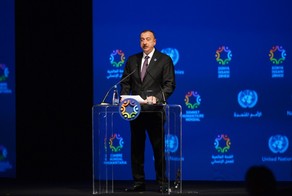
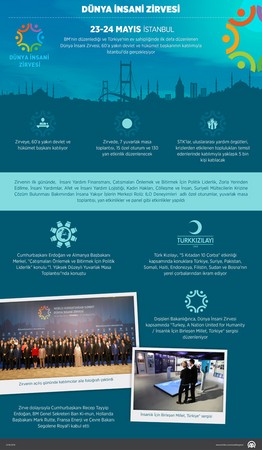
At the opening ceremony, the UN Secretary General Ban Ki-moon and the President of Turkey Recep Tayyip Erdogan made the opening speeches.
The two-day event was also attended by President of Azerbaijan Ilham Aliyev, who made a speech as well. Aliyev said that as a result of occupation of Azerbaijani territories by Armenia more than 1 million Azerbaijanis have become refugees. Announcing the availability of 4 UN Security Council resolutions related to liberation of Nagorno-Karabakh from the occupation, the President noted importance of applying sanctions against Armenia.
As in recent years, the former Soviet Union, in the light of occupation of Azerbaijani territories by Armenia and its patrons, Azerbaijan is one of the countries that are faced with a humanitarian disaster.
Since the end of 1988 of the last century, Azerbaijan has sheltered hundreds of thousands of refugees from Armenia, Georgia and Uzbekistan.
The data of Foreign Ministry of Azerbaijan, dedicated to the problems of refugees and IDPs in Azerbaijan, says about their situation and social security. It notes that the forces interested in the region, forced Azerbaijanis to leave their historical lands. The attempts of Armenians to grab as much land as led to the fact that Azerbaijanis fled their homes in 1905, 1918-1920, 1948-1953 and 1988-1993.
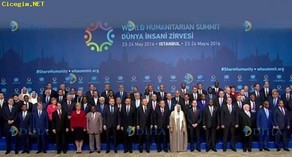
As a result of Armenia's policy of ethnic cleansing pursued in 1988-1992, more than 250,000 Azerbaijanis were forcibly expelled from their native lands and they had to settle down in Azerbaijan.
Forced to leave Central Asia in 1990, approximately 50,000 Meskhetian Turks (Akhiska) also settled in Azerbaijan. According to unofficial information, 270,000 refugees from Georgia also came to Azerbaijan in those years.
As a result of the occupation of the Nagorno-Karabakh region, more than 1 million Azerbaijanis have left their homes and settled in various cities and towns of the country.
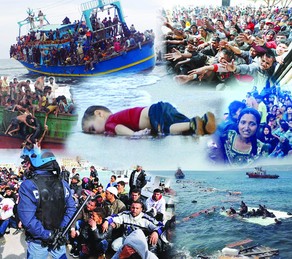
Hence, conflicts are often the result of a collision of forces of interest. Then primary responsibility for the humanitarian disaster largely rests with them. However, there is also a presence of predominant modes that control a number of states. The events in Syria are the best example.
The most regrettable thing is attitudes of those, wishing to ensure their interests, to the issue of refugees since we can observe discrimination during the process of providing assistance to refugees.
Officials in Ankara claim that they have adopted more than 3 million refugees from Syria. In return for this, the matter of assisting Turkey becomes a matter of political bargaining. Terrorists who want to disrupt the territorial integrity of Turkey, are trying to "legitimize" their activities on the territory of European countries and they receive financial and military assistance.
Thus, there are forces responsible for a threat of a humanitarian catastrophe and a "lost" generation of children. The absence of their leaders in the list of participants in the Istanbul Summit can be considered as an indicator that the scope of the humanitarian threat will not reduce. Being strong does not mean to be fair. It is a pity that the fate of the world is in the hands of those who are strong but not fair.


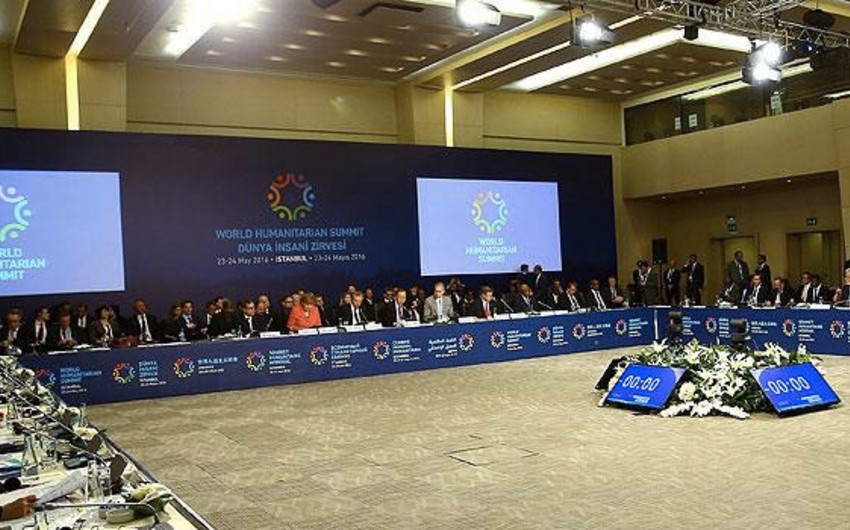 https://static.report.az/photo/ff02fd81-9824-4311-b75d-48c19830496b.jpg
https://static.report.az/photo/ff02fd81-9824-4311-b75d-48c19830496b.jpg

